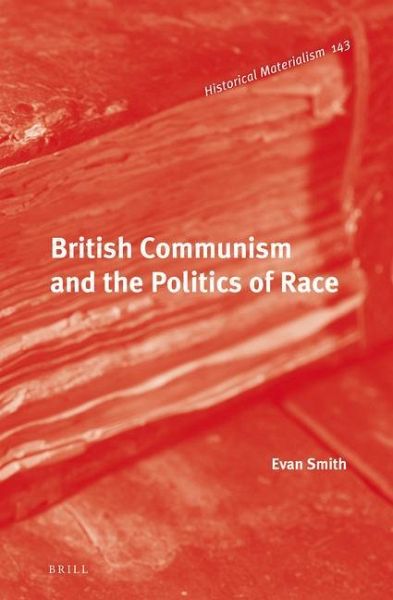
British Communism and the Politics of Race
Versandkostenfrei!
Versandfertig in über 4 Wochen
124,99 €
inkl. MwSt.
Weitere Ausgaben:

PAYBACK Punkte
62 °P sammeln!
British Communism and the Politics of Race explores the role that the Communist Party of Great Britain played within the anti-racism movement in Britain from the 1940s to the 1980s, campaigning against racial discrimination, popular imperialism and fascist violence.


